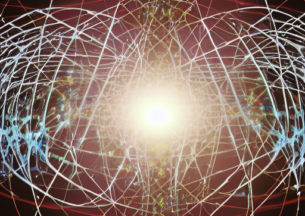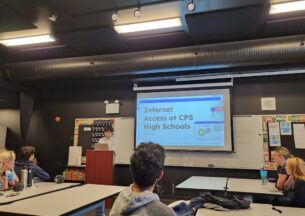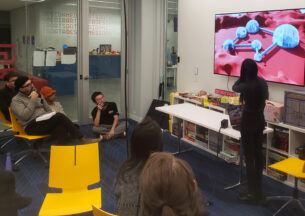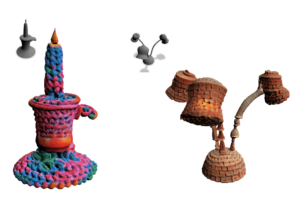New Project Seeks Greener Computing By Granting Equipment “Second Life”

Even the most powerful supercomputers and computing clusters have a short shelf life. Typically, these high-end machines run for five years at most, before they are phased out in favor of newer, more powerful or energy-efficient models. After their retirement, most of these HPC resources end up in a landfill — though some components can be repurposed or resold, data security concerns mean it’s often safer to junk these very expensive technologies instead of continue their operation.
UChicago CS Professor Andrew A. Chien has a better idea for the fate of these machines. In a new NSF-funded project with UChicago’s H. Birali Runesha, Ian Foster, and Robert Gardner, he’ll examine how granting these resources a “second life” could help realize a vision of greener large-scale computing. By almost literally putting this older hardware out to pasture and running it with surplus clean energy from wind and solar, the concept offers dual benefits: reduced e-waste and increased scientific computing that is carbon free.
The new research is a subset of Chien’s broader Zero-Carbon Cloud project, which develops approaches using “stranded” green power to create carbon-free data centers. Because of the variable production of renewable energy, power grids are often left with more power than they can sell, leaving megawatts of clean energy unused. By co-locating computational facilities filled with “second life” equipment near renewable power sources such as wind farms, these centers can run on that excess energy, providing a cost-effective “retirement home” for previous generations of computing resources.
“The goal is to figure out how to create an ecosystem that would allow us to extend the life of this equipment,” Chien said. “The Zero-Carbon Cloud makes it possible to have much, much cheaper data center power and space, so that it's cheaper for computing center operators to put their equipment out there than it is to keep it in their own facilities. It allows you to run with a clear conscience and a clean carbon footprint.”
An estimated $1 billion of computing equipment is retired by governments and universities each year, for a variety of reasons. Like PC consumers, computing centers frequently upgrade their resources with the latest hardware. When these new systems arrive, the facilities may no longer have the space to keep older models around, or the personnel to keep these machines operational as the original warranties and contracts expire.
Unfortunately, there currently aren’t many incentives to find a productive use for this decommissioned equipment, which leads to significant e-waste. By convening experts and stakeholders, including leaders of academic scientific computing centers, commercial data center operators, hardware manufacturers, and computer scientists, Chien hopes to identify the technical and legal challenges and solutions for making this alternative retirement plan possible.
“We're putting together working teams that can define models for how this concept happens,” Chien said. “We want to make it easy for an academic to consider this process and not have to reinvent it every time. If we can make it happen, we create this transformation of the ecosystem, and then hopefully, it becomes self-reinforcing.”
Chien is also collaborating with economists John Birge of the Booth School of Business and Michelle Wu at MIT on economic models that can demonstrate the value of the “second life” approach. While current decommission practices may provide institutions with little or no financial restitution, the cost associated with the “second life” concept — relocating equipment and finding personnel to maintain and operate it — won’t be trivial, so the benefits must be determined.
The project will test different partnerships with data center operators pursuing carbon-neutral strategies, such as Lancium and Soluna. Proposals include universities splitting the cycles on the relocated equipment with the operator in exchange for maintenance costs, paying only for the power consumption of the resources, or donating the equipment for a specific cause, such as cancer research, which will receive a reduced rate for usage.
Through workshops and modeling, the project hopes to find a plan that maximizes the idea’s potential: lower waste, costs, and energy consumption while still expanding the capacity for scientific computing at universities and government agencies.
“We both study the benefits of an extended lifecycle ecosystem, but we also plan to catalyze its creation!,” Chien said. “The potential rewards and value to scientists and institutions make this a transformation that can — and should! — happen right now! The only remaining question is what shape this new ecosystem will take, and we’re working that out.”












